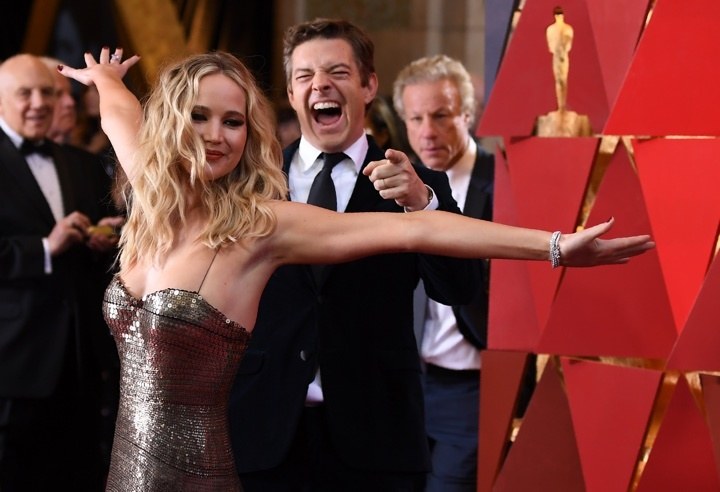Reading the lip-smacking reports of the latest troubled celebrity relationships (Jennifer Aniston and Justin Theroux definitely high and dry, Cheryl Cole and Liam Payne allegedly on the rocks) I couldn’t help musing that stars – and more specifically, the place they occupy in our mass psychological landscape – have very much changed since the first mass-market celebrities emerged. The film stars of the fledgling Hollywood truly were worshipped as higher beings; a tribe of Pathan Indians opened fire on a cinema when they were denied entry to a Greta Garbo film while women committed suicide when Valentino died. Their marriages were regarded as heavenly unions; their romantic sunderings as tragedies. These days, though, there’s a tangible sense of glee when a celeb’s private life crashes and burns; in short, they have moved from dais to doghouse.
When entertainers espouse a political cause – as they did with Hillary Clinton and Remain – it seems that more ‘civilians’ (to use Elizabeth Hurley’s risibly inaccurate phrase; surely ‘punter’ is nearer the mark) turn against it than support it. Surely some of this disdain on the part of the paying – and tweeting – public is down to the increasing desire of stars to be seen as suffering grafters when their lives are extremely soft and well-remunerated. (And I say this as someone whose own life, due to my writing career, has been extremely soft and well-remunerated.) In the past, stars simply accepted their status as unreal beings and would never have claimed that walking a cheetah on a leash down Sunset Boulevard was in any way comparable to doing a shift in a factory. But things have changed. Gwyneth Paltrow has not only famously claimed that being being a film star is tougher than doing a ‘regular’ job but also that reading nasty things about herself and her friends was ‘…almost like how, in war, you go through this bloody, dehumanising thing …’
The feel-my-pain shtick of stars makes them far less likeable than the never-explain-never-complain icons of olden days, and far better candidates for a casual bit of bullying on social media. Lena Dunham, most notably, has learnt that she who lives by virtue-signalling will die by it while her equally repulsive ex-boyfriend Jack Antonoff proved that the only good thing about their union was that they could make two people miserable instead of many when he tweeted, after being caught pawing Lorde, ‘Normally I would never address rumours but I resent having the most important friendships and working relationships in my life reduced to dumb heteronormative gossip…those relationships are deeply important and sacred.’ Whatever happened to ‘We’re just good friends’?
It would be easy to conclude that the online monstering of celebrities signals a degradation of private life, but I think it more likely that it is simply another part of the decline of deference which is to be welcomed if a society is to be dynamic. It’s fairer to say that stars have brought it on themselves – don’t yell ‘Look at MEEE!’ then be upset when people look at you. Try to get a little perspective, and admit your part in the mad mutual mazurka of media attention, which may well be driven by your own neediness; George Michael, who certainly knew about these things, once defined a star as ‘someone with a little something missing rather than a little something extra’.
Entertainers would be dismayed in the short term but might find life easier in the long term if they came to terms with the fact that – a few psychotic stalkers aside – the public use them as temporary distractions rather than objects of obsession. I’ll forever treasure the report of Demi Moore saying to Tina Brown at the party to launch Talk magazine, as the civilians peered across the velvet ropes into the VIP enclosure, ‘Can you imagine how you and I look to those people over there?’ Had Twitter been around back then, she’d have got her answer PDQ: like an ageing actress and a jumped-up hack easily mistaken for the once-popular singer Lulu.
The sad aspect of the star’s fear of the fan is that of course they have been perved over and preyed upon by trolls – ever since the first casting couch was wheeled out, in fact. Actresses comparing everything from being photographed to fame itself to being ’raped’ over the last decade were perhaps not being insensitive, whiny brats but genuinely victimised by the hordes of lesser-spotted Weinsteins who are drawn like beetles to dung to the entertainment industry – and unable to acknowledge it. Now that #MeToo has legs, maybe they will feel able to address the real source of the threat to their integrity – physical and otherwise.


















